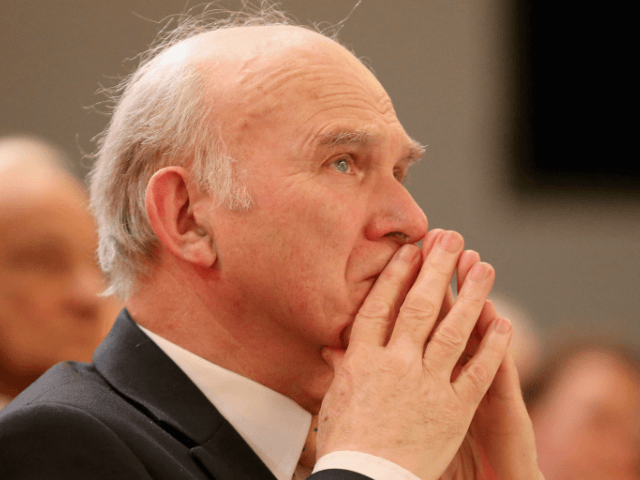Sir Vince Cable, the ex-Business Secretary, has said universities will increasingly ban feminist and right-wing speakers – such as Germaine Greer Nigel Fargae – to not appear “anti-Islamic” now they are compelled to ban “non-violent extremists” in accordance with new anti-terror laws.
In a speech given to the Institute of Advanced Legal Studies yesterday, Mr Cable said institutions would feel obliged to “demonstrate impartiality” and ban “non-Muslim speakers whose reputation is also controversial for different reasons”.
Section 26 of the Counter-Terrorism and Security Act 2015, better known as PREVENT, compels teachers and lecturers “to take due regard to preventing people being drawn into terrorism” and report those who promote “non-violent extremism”.
A report in July found that between 2012-14 there were over 400 extremist Islamist events on British campuses, and it is hoped the legislative change will stem that number.
However, Sir Vince said: “Once we get into the way of thinking that the best way to deal with extreme views is to suppress them, we get into very dangerous territory indeed,” the Daily Mail report. He continued:
“And unfortunately I think that is the way the government is trying to lead. If the government is successful in getting through legislation, which in turn leads to guidance to universities, I suspect what will happen is this.
“The legislation and the guidance will be vague, and universities being naturally risk adverse institutions will err on the side of caution and try to stop controversial speakers.
“They will then be accused of being anti-Islamic and so they will try to stop other speakers of other persuasions.”
The issue has been brought to the fore by the recent barring of Germaine Greer and others who question the orthodoxy, such as Julie Bindle and Brendan O’Neill. UKIP leader Nigel Farage cancelled a talk at Cambridge University in 2014, after students labelled him an extremist and threatened to protest.
Mr Cable, whose Liberal Democrat party blocked their Conservatives coalition partners from introducing such legislation in the last parliament, explained that censoring any one group could have consequences for wider society.
“The danger is that we say ‘Ok well we’ve banned that lot, therefore we will ban this lot’,” he said. “You get on to this downward spiral where any form of radical dissent is actively discouraged or not allowed.”
Adding: “Instead of intellectual challenge there will be a bland exchange of views which are inoffensive and politically correct.
“This will not stop terrorism or terrorist recruitment and may even make the problem worse by driving underground those who are regarded as extreme but are currently non-violent.”
Sir Vince, who suggested religious sectarianism in the West of Scotland was a form of “nonviolent extremism”, warned that prevention measures “can easily degenerate into surveillance”.
Adding: “Common sense suggests that anything which encourages secretive, suspicious behaviour is more likely to help terrorism than hinder it.”
He also criticised the government’s proposed Extremism Disruption Orders, so-called Asbos for hate preachers, claiming it could make them seem “martyrs’ and would prove ‘counter-productive”.
Simon Calvert, from the Christian Institute and spokesperson for the Defend Free Speech campaign, slammed the proposal in September:
“These ostensibly are designed to help tackle the rise of terrorism, but the problem is from what we’ve heard so far from the government they’re going to be drafted so widely that they could actually be used to cut across the freedom of speech of all kinds of ordinary people…
“I think there is a genuine fear that Extremism Disruption Orders will be drafted so broadly you could end up with people you and I respect in the Christian community and having an EDO slapped on them.”

COMMENTS
Please let us know if you're having issues with commenting.